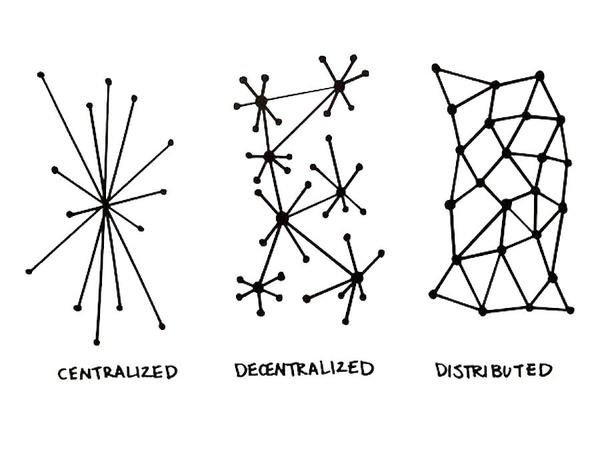Differences Between "BLOCKCHAIN" & "DISTRIBUTED LEDGER TECHNOLOGIES".

Some may believe that there is only one (1) "Blockchain". In fact, there are a few types of blockchain depending on the application.
We first should understand that there are technical differences between "BLOCKCHAIN" & "DISTRIBUTED LEDGER TECHNOLOGIES."
Blockchain core spotlights how data is stored & linked to each other in an sequential order represents one type of distributed ledger technology or DLT. In it's simplicity, with this technology you have an open source peer-2-peer network within one system, (think as if all networks within a bubble) transmitting digital records or transactions called a block. The variation in this blockchain is that these sequence of blocks are "chained" without having to utilizing a middle-person whereby maximizing efficiency & cost.

While distributed ledgers spotlights the sharing of a database throughout all validators or nodes within that network or bubble. Depending on the entity being used, DLT need not depend on such a chain nor require proof of work. These ledger are a type of database that are transmitted across multiple nodes. A normal database would consist of a central assembly, since we are talking DLT's, thereby these network will be decentralized.
The details in these blocks are giving an unique cryptographic number (hash function, proof of work or provable security) and are time stamped. Even though these blocks are made public, only the owner with their own personal "private key" has admittance. Hence, they are called "Public blockchain" and are synonymous with our cryptocurrencies technologies used today.

The Bitcoin behavior was the first to use this particular form of blockchain. Other virtual currency use different procedures yet with similar results called mining. Which not only adds value to each block by rewards the contributing computing capacity for each hashed sequence or chain.
As you can see, a blockchain can be used as a ledger and shared publicly.
Next, you have what could easily and has been compared to as shared database. Instead referred to as "Private blockchain". This is more of an internal based sharing blockchain where one central entity is a privy to read or/and write. Where public access may not be necessary. Private blockchains can provide privacy and scalability solutions due to all the nodes (computers) being strictly controlled. As we are still talking blockchain technology, keep in mind that there are consensus mechanisms, signature verification & computation requirements.
An alternate private blockchain called Consortium/federated blockchain allow multiple entities within an industry to share confidential data. Useful with the likes of banks, energy companies, healthcare industry, insurance agencies. If we use the bubble description as above, just picture multiple bubbles only some having a type bridge that interact with a specific bubble or network.
This technology is in it's infant just as the internet was just a little over 20 years ago. Emerging peer-2-peer usage will include data storage aka cloud, digital advertising, movies, music. Identity theft - digital ID.....birth certificates, passport. Eliminating the middle-person in digital or smart contracts. Avoiding voter fraud, hang on.....cause it's going to get deep, deeper. There's a buzz surrounding this technology for a reason.
Investment Opportunites?

Very nice post, thanks for sharing, well done.
Much appreciated @ehabakhdar We are in an new ear of technology & wealth building opportunities. The more information we educate ourselves on, the better choices we can make. I see a world of financial growth in the future.
This is an excellent post greetings #economy5_0
I am humbled. I'm still pretty fresh here in Steemitland. Yet, I intend on posting real and useful content.
Best regards @artonsteem